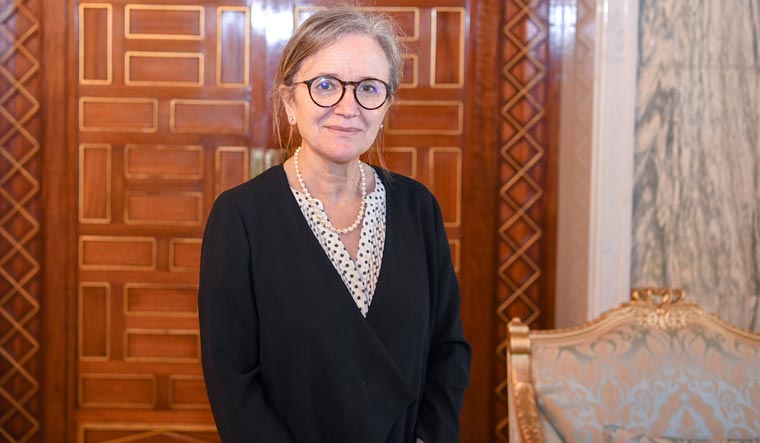Tunisia burst on to international headlines in 2011 as the birthplace of the Arab Spring. It was also the only country in the region that saw democracy taking roots, following the turmoil of the Arab Spring.
On Wednesday, Tunisia achieved another first for the region. Tunisian President Kais Saied appointed Najla Bouden Romdhane as its prime minister. She is the first woman to rise to the post of prime minister in any Arab nation.
Speaking after a meeting with Romdhane, Saied said, "This is the first time in the history of Tunisia that a woman has led a government... It is an honour to Tunisia and Tunisian women," CNN reported.
"We will work together in the near future, armed with the stable and constant determination to combat the corruption and state of chaos that has been witnessed throughout the country in several government institutions," Saied was quoted as saying by The National, a UAE-based media outlet.
Romdhane is a professor of geoscience at the National Engineering School in Tunis and had served in the ministry of higher education in 2011.
While the appointment of Romdhane has symbolic importance, her ascent comes amid concern that Tunisia is sliding from its democratic trajectory. Her appointment comes just over two months after Saied dismissed the previous prime minister and suspended the activities of Parliament.
Saied attributed his decision to remove then prime minister Hichem Mechichi to the need to address the economic crises and alleged mishandling of the COVID pandemic. In July, massive protests had erupted over the COVID situation; only 7 per cent of the country's population had been vaccinated until then.
Following the removal of Mechichi, Saied moved to remove senior judges and also detained some judicial officials and lawmakers, prompting concern Tunisia was heading back to dictatorship.
Last week, Saied effectively suspended most sections of the constitution and said he would be ruling by decree.
How Tunisia's government functions
Tunisia has a semi-presidential (also known as quasi-presidential) form of government, where according to the 2014 constitution, the president shares power with the prime minister. Under the constitution, the president oversees defence, national security and foreign affairs, while the prime minister looks after day-to-day governance, including appointing officials.
Saied had previously argued that the political system as defined by the constitution of 2014, intended to create checks and balances, had created "locks everywhere". Saied had called for a dialogue with political parties to create a "new political system".
Romdhane will be the 10th prime minister of Tunisia since the Arab Spring. But the fact that she is considered a novice in politics, and Saied is moving to consolidate his powers, casts doubts on her ability to govern.
Al Jazeera reported, "Ordinarily under Tunisia’s constitutional system, the president appoints a prime minister, who then appoints members of her cabinet and this all has to be approved by Parliament... But the president has suspended Parliament—so he’s appointed Najla Bouden Romdhane as prime minister, but there’ll be no parliamentary approval of this."
Reuters reported, "Bouden is likely to have less direct power than previous prime ministers under the 2014 constitution after Saied said last week that during the emergency period the government would be responsible to the president."
Romdhane will have to get to work on the economy and public health. Tunisia has faced years of economic stagnation. In 2020, unemployment hit nearly 17 per cent, with youth unemployment at over 30 per cent.












